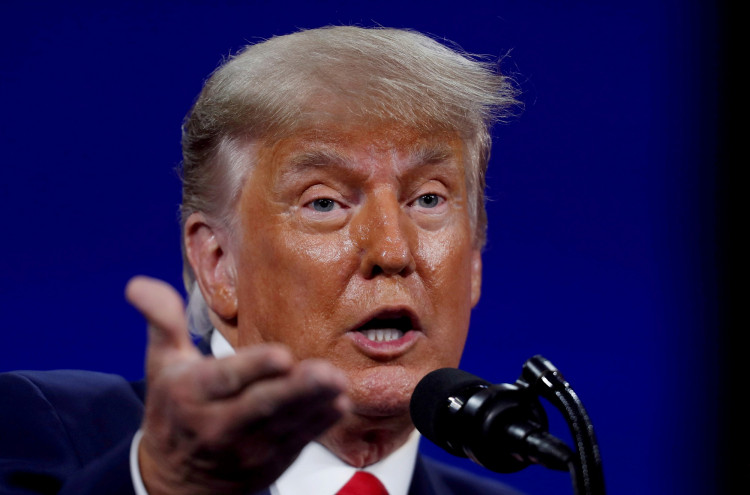In a move that could dramatically reshape U.S. policy toward the Russia-Ukraine conflict, two key advisers to former President Donald Trump have outlined a plan that would condition further U.S. military aid to Ukraine on its willingness to enter peace talks with Moscow, Reuters reported. The plan, which has been presented to Trump and reportedly received his favorable response, aims to leverage U.S. support to push both sides towards negotiations.
The strategy, devised by retired Lieutenant General Keith Kellogg and Fred Fleitz, both of whom served in Trump's National Security Council, proposes a ceasefire based on current battle lines during the peace talks. According to Fleitz, Trump reacted positively to the proposal, although he did not fully commit to all its details. "I'm not claiming he agreed with it or agreed with every word of it, but we were pleased to get the feedback we did," Fleitz said.
Trump spokesperson Steven Cheung emphasized that only official statements from Trump or authorized campaign members should be considered definitive. Nonetheless, the proposal represents the most detailed plan yet from Trump's circle regarding the Ukraine conflict, which Trump has asserted he could resolve swiftly if elected.
The plan would mark a significant shift in U.S. policy and likely face resistance from European allies and some within the Republican Party. The Kremlin, meanwhile, has indicated openness to negotiations but stressed that any peace plan must reflect the realities on the ground. Kremlin spokesman Dmitry Peskov remarked, "President Putin has repeatedly said that Russia has been and remains open to negotiations, taking into account the real state of affairs on the ground."
Ukraine's foreign ministry has not commented on the plan. However, the proposal's core elements, outlined in a research paper by the America First Policy Institute, suggest significant diplomatic maneuvering would be required to bring both sides to the negotiating table. "We tell the Ukrainians, 'You've got to come to the table, and if you don't come to the table, support from the United States will dry up,'" Kellogg stated. "And you tell Putin, 'He's got to come to the table and if you don't come to the table, then we'll give Ukrainians everything they need to kill you in the field.'"
A key part of the strategy involves delaying NATO membership for Ukraine, a move intended to coax Moscow into negotiations. Since Russia's invasion in February 2022, the conflict has seen tens of thousands of casualties and relentless trench warfare, making it the bloodiest conflict in Europe since World War II.
Fleitz noted that while Ukraine might not need to formally cede territory to Russia, regaining full control of its land soon is unlikely. "Our concern is that this has become a war of attrition that's going to kill a whole generation of young men," he said. The plan also includes additional security guarantees for Ukraine, likely involving extensive U.S. military aid.
The Biden administration has consistently supported Ukraine, pushing for more aid and backing its eventual NATO membership. In contrast, Trump has suggested he would reduce or cut aid to Ukraine, arguing that the war would not have occurred if he were president. "The war between Russia and Ukraine never would have happened if Donald J. Trump were president. So sad," Trump spokesperson Cheung stated.
Critics of the plan argue it could favor Moscow by forcing Ukraine to negotiate from a position of weakness. Daniel Fried, a former assistant secretary of state, warned, "What Kellogg is describing is a process slanted toward Ukraine giving up all of the territory that Russia now occupies."
The Biden campaign has criticized Trump's stance, with spokesperson James Singer asserting that Trump is reluctant to stand up to Putin. "Donald Trump heaps praise on Vladimir Putin every chance he gets, and he's made clear he won't stand against Putin or stand up for democracy," Singer said.
Republican reluctance to continue funding Ukraine's defense further complicates the proposal. The U.S. has already allocated over $70 billion in military aid to Ukraine since the invasion began. Some Republicans are keen to reduce or halt this support, reflecting broader divisions within the party.






